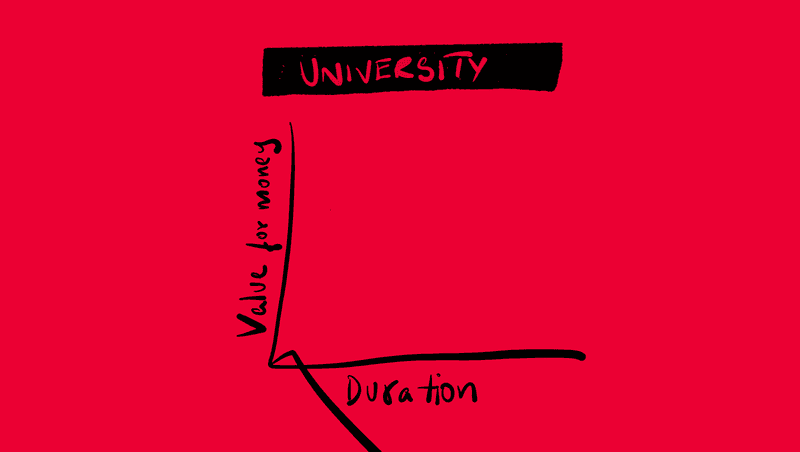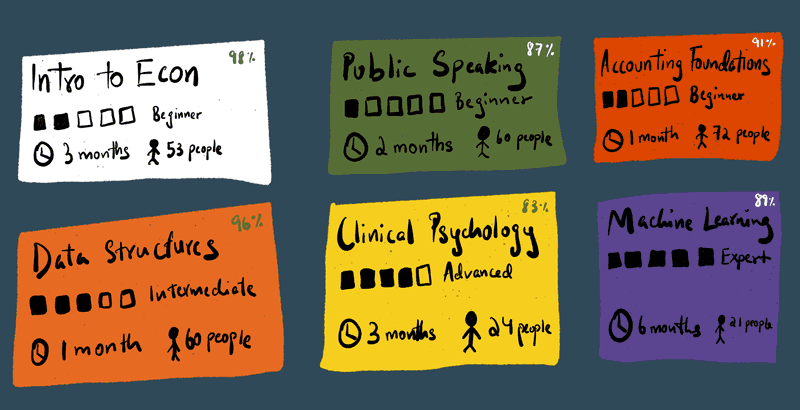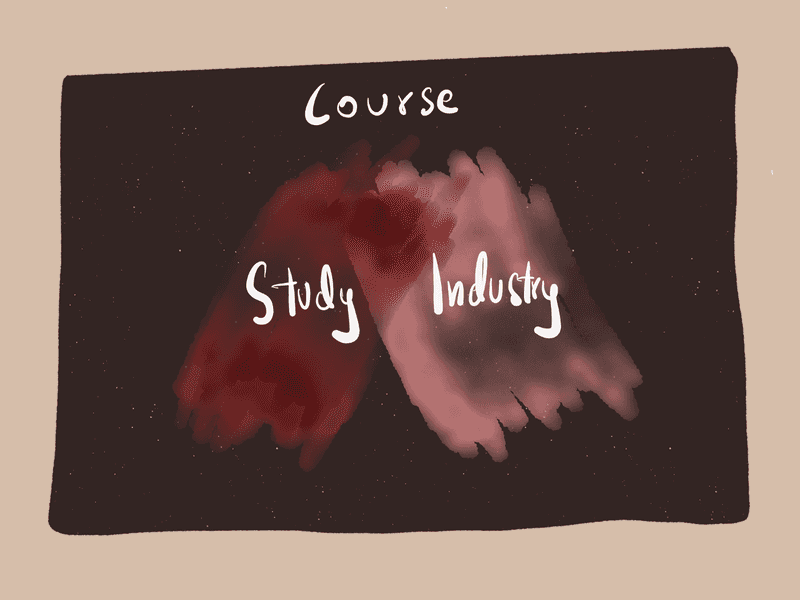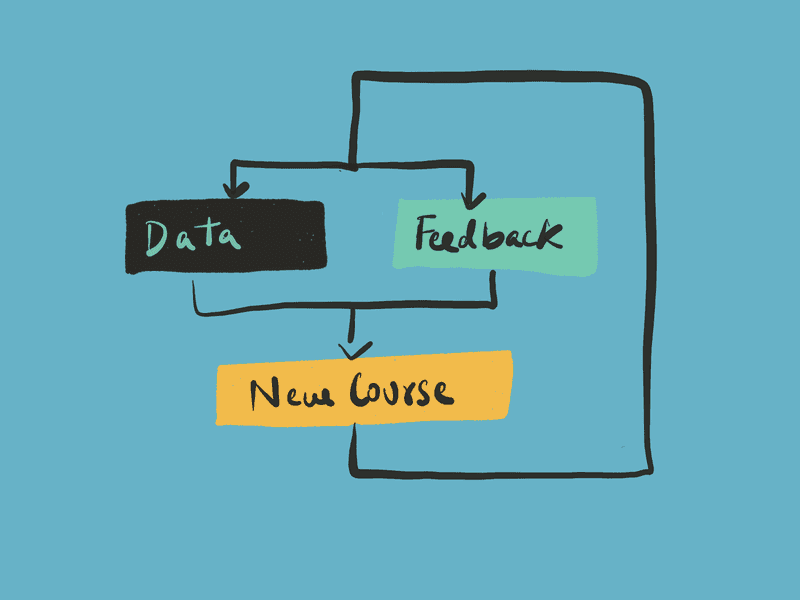Rethinking University for the Netflix Generation
November 11, 2018
I spent the past year interning at IBM and my summer in an intense web development course. After these two very intense and practical experiences, I am back at university for my final year and boy… do things need to change here. Universities as we know it were built in a time where markets were more stable and the nature of jobs, more predictable. Unfortunately, we don’t live in times like that any more and these academic institutions have failed to adapt.
My biggest gripe with university is bureaucracy and vested interests. If you think about it — universities are service providers and you are the end customer. Can you imagine Amazon or Uber treating you the way universities treat students?
Lectures are uninspiring, material is not always practical and the feedback loop to make things better is extremely broken. From an administrative perspective, things are not much better either. Requesting a simple document or a student card replacement is usually its own ordeal. There is unnecessary hierarchy involved in all avenues of the institution and no one has an incentive to make things better. The system is whack out of order — universities chase bullshit metrics and they will do anything to conform data in a way that satisfies their motives.
Statistics showing graduate employment rates are essentially cushioned by a push-up bra of data favouritism. Universities compete with each other on not just the quality of their education (the measurement of which is highly flawed), but more so on superficial aspects focused on woo-ing unsuspecting teens and parents. The first 2 years I spent in university, my line of sight was pretty much covered in scaffolding. Tuition rates are being hiked and money is being spent on vanity projects like fountains, which have questionable ROI (return on investment) to the students and a painfully slow rate of development.
Personal growth, on the other hand is not held in high regard, unless it has a direct influence on vanity metrics. There aren’t many institutions out there that encourage you to critically challenge the norm. Rather, we are to merely accept it and sell our souls for a high paying graduate job. We are not creating a generation of leaders, we’re spawning a flock of sheep.
The issue is simple — universities were not designed with the end users in mind. They were built in an era where its role was to be an employee churning machine and the way to monetise the service is to maximise the number of students bringing in the bling. There needs to be a new kind of educational institution, redesigned from the ground-up, with a god-like devotion to customer (student) focus. That is how you build a world class service. Ask Apple.
The problem is clear…what is the solution?
The key is to destroy the university model as we know it and approach it like a business out of Silicon Valley. Let’s call the model Education as a service, if you care for the jargon. These new-age universities will operate on a new set of pillars: Flexibility, Practicality and Student Centricity.
1. Flexibility
The current model assumes that people who start university are perfectly convinced that their major is exactly what they want to be doing. However, the reality is different. From personal experience, I’ve been frustrated because I am enrolled in business school but I also wanted to dip my feet in psychology and computer science. As it turns out, picking a few subjects that lay outside the bounds of the business school was a huge no-no. I am aware many universities do offer a cross-discipline subject mix, but, it could be better and easier.
I believe universities need to move more towards a Netflix model of operating. Instead of having lengthy courses that lock you in, there should be plenty of bite-sized courses to choose from, lasting anywhere from 2 weeks to 6 months. This flexibility would allow people to form their own bundles and would do away with the concept of standardised degrees as we know it. Let’s face it, education can never be a one size fits all solution, so let’s stop pretending like it’s working.
Degrees would no longer have a fixed timeframe, people would pay a monthly subscription fee which would grant them access to a wide range of courses. This would encourage interdisciplinary exploration. There could be a premium tier of classes where industry veterans and top executives lead the charge. The possibilities are endless.
2. Practicality
After 2 years of studying in university, when I did my internship, most of my knowledge came from on the job learning. Unsurprisingly, this was the case for most of my colleagues. This experience may vary for students in STEM fields but they are definitely somewhere along the same spectrum. You can spend years studying about management theories or how computers manage memory, but there is nothing that solidifies knowledge like hands-on experience. We need to rekindle the spark that makes us unique in the first place. We learn by doing and failing — we are not objective machines.
Failure is such a crucial element to learning, but it is shocking how much of a taboo it is! Top grades are all that matter in this environment. Students waste away their time calculating what grade they would need to obtain in each assignment in order to maintain a ‘good’ score. A meaningless number which indicates nothing of your learning and nothing of your ability to operate in the real world.
The new system needs to focus on a more practical approach to learning. Theoretical learning will be coupled with practical projects with real stakeholders. Students will be exposed to industry standard practices and disruptive technologies which will shape the future of work to come. Collaborative working is going to be a huge part of the course and students will be exposed to the broader ecosystem, instead of being trapped in the unrealistic bubble of academia.
3. Student Centricity
Courses need to be designed with the final consumers, aka students in mind. The whole system needs to discard vested interests and instead, adopt a data driven approach, coupled with a design thinking mindset. That is basically fancy talk for — track everything, obsessively. The university metrics need to be directly aligned to the success of its students and KPIs (key performance indicators) need to be tracked with that in mind. However, the human element is equally important. There needs to be a mechanism to collect rich feedback from students constantly. New courses should be designed hand in hand with the students, not in isolation by someone far removed from the realities of the market and the students.
All of these things would lead to a generation of much more interesting people with incredibly rich and varied perspectives. That is the true essence of humanity, let’s not standardise it.
Finally, I want to end this by saying, these opinions are entirely my own and shaped by my personal experience. This is not factual and should not be treated as such. Focus on the bigger picture — education needs an update.
Karan




